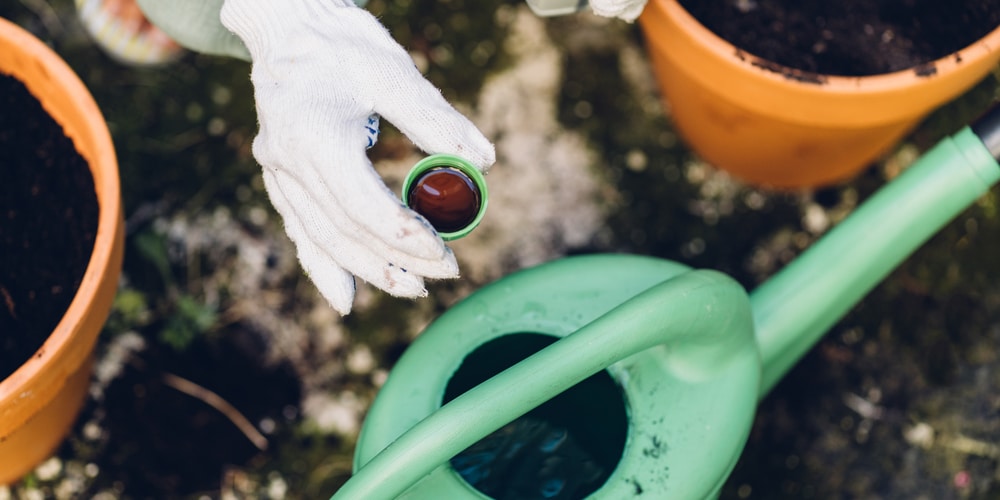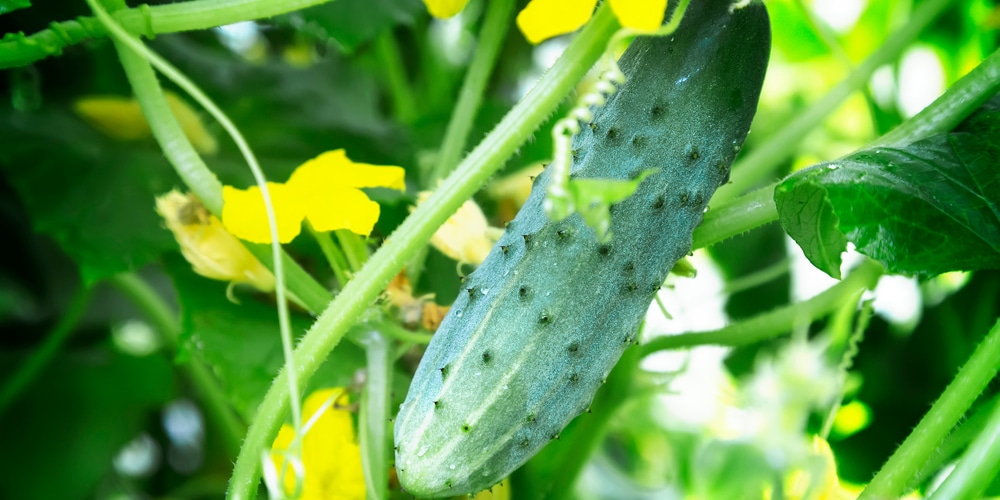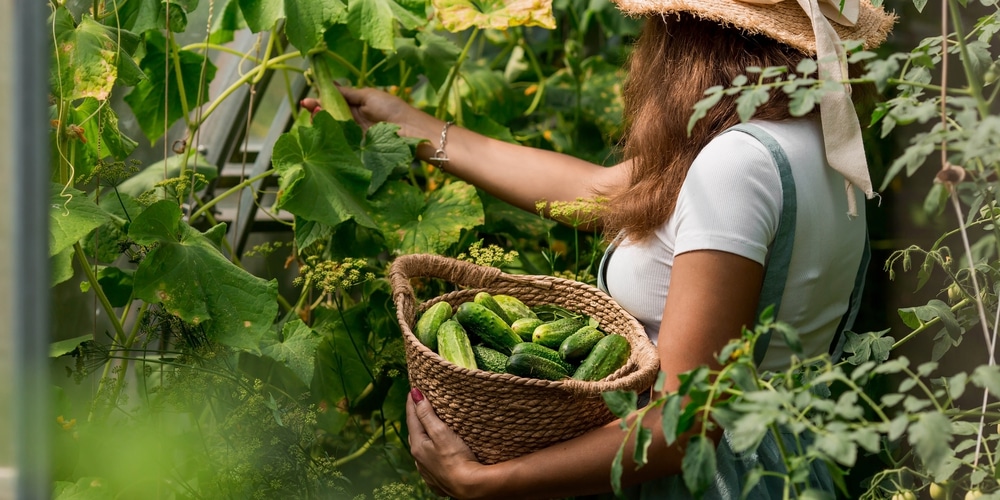There are many different types of fertilizer on the market, but is 10-10-10 good for cucumbers? Many gardeners have asked this question over the years. The answer to this question is a little bit complicated.
This article will explore the benefits and drawbacks of using 10-10-10 fertilizers for cucumbers. We will also discuss some of the best types of fertilizer for these vegetables.
What Is 10-10-10 fertilizer?
10-10-10 fertilizer is a commonly used garden fertilizer that is made up of 10% nitrogen, 10% phosphorus, and 10% potassium. This fertilizer is typically used to promote growth in plants and vegetables.
Nitrogen helps to promote the growth of leaves, while phosphorus helps to promote the growth of flowers and fruits. Potassium helps to promote the overall health of the plant.
In addition to these three primary nutrients, 10-10-10 fertilizer also contains smaller amounts of other essential nutrients, such as magnesium and sulfur.
This fertilizer can be applied directly to the soil or diluted with water and applied using a watering can. It is essential to follow the directions on the fertilizer label, as too much fertilizer can damage plants.
Is 10-10-10 Good For Cucumbers?
Most gardeners have heard of 10-10-10 fertilizer, but many are unsure of what it is and whether or not it is suitable for their plants. 10-10-10 fertilizer is a chemical fertilizer containing equal parts of three key nutrients: nitrogen, phosphorus, and potassium.
These nutrients are crucial for plant growth, and the ratio of 10-10-10 provides a good balance for most plants. However, some plants, such as cucumbers, are susceptible to high phosphorus levels.
For this reason, some gardeners prefer to use a different type of fertilizer for cucumbers. While 10-10-10 may not be ideal for cucumbers, it can still be used if it is applied carefully and in moderation.
Best Fertilizer For Cucumbers
Like most garden vegetables, cucumbers need a fertilizer high in phosphorus and potassium (potash) but low in nitrogen. Nitrogen encourages the growth of foliage and vines, but too much of it could prevent the plant from producing blossoms or cucumbers.
An NPK ratio of 5-8-10 or 3-3-3 is ideal for growing cucumbers. For best results, mix the fertilizer into the soil before planting, then water regularly and apply additional fertilizer every few weeks throughout the growing season.
You can enjoy a bountiful harvest of crisp, refreshing cucumbers all summer long with a bit of care.
Granular Vs. Liquid Fertilizer
There are two main types of fertilizer: granular and liquid. Granular fertilizer comprises small, dry pellets that can be applied directly to the soil. Liquid fertilizer is mixed with water and applied using a watering can or hose attachment.
Both types of fertilizer have their benefits and drawbacks. Granular fertilizer is easier to apply evenly, but it can be more challenging to control the amount of fertilizer applied.
Liquid fertilizer is more challenging to apply evenly, but it is easier to control the amount of fertilizer applied. Gardeners should experiment with both types of fertilizer to see which one works best for their cucumber plants.
Ideal Conditions In Growing Cucumbers
When it comes to growing cucumbers, there are a few things to keep in mind to produce healthy, tasty fruits. One of the most important factors in choosing the right fertilizer. Here are a few tips to help you choose the best fertilizer for your cucumber plants.
First, consider the type of soil you have. Cucumbers thrive in well-drained, loose soil with a neutral pH. If your soil is heavy or compacted, it might be necessary to add some organic matter to help improve drainage and aeration. Second, think about the nutrients your cucumber plants need.
Cucumbers are heavy feeders and require plenty of nitrogen, phosphorus, and potassium for proper growth. An excellent general-purpose fertilizer will provide these nutrients in the proper proportions. Third, take into account the timing of fertilization.
Cucumbers should be fertilized every two weeks during the growing season. Be sure to follow the directions on the fertilizer package carefully so that you don’t over or under-fertilize your plants.
By following these simple tips, you can ensure that your cucumber plants get the nutrients they need to produce plentiful fruits all season long.
Is 10-10-10 fertilizer good for cucumbers: Conclusion
In conclusion, while fertilizer is vital for cucumber plants, choosing the right type of fertilizer and applying it carefully is essential. Liquid fertilizer may be more challenging to apply evenly, but it is easier to control the amount of fertilizer used.
Gardeners should experiment with both types of fertilizer to see which one works best for their cucumber plants. You can enjoy a bountiful harvest of crisp, refreshing cucumbers all summer long with a bit of care.
Related Article: When Do Cucumbers Produce Fruit?


